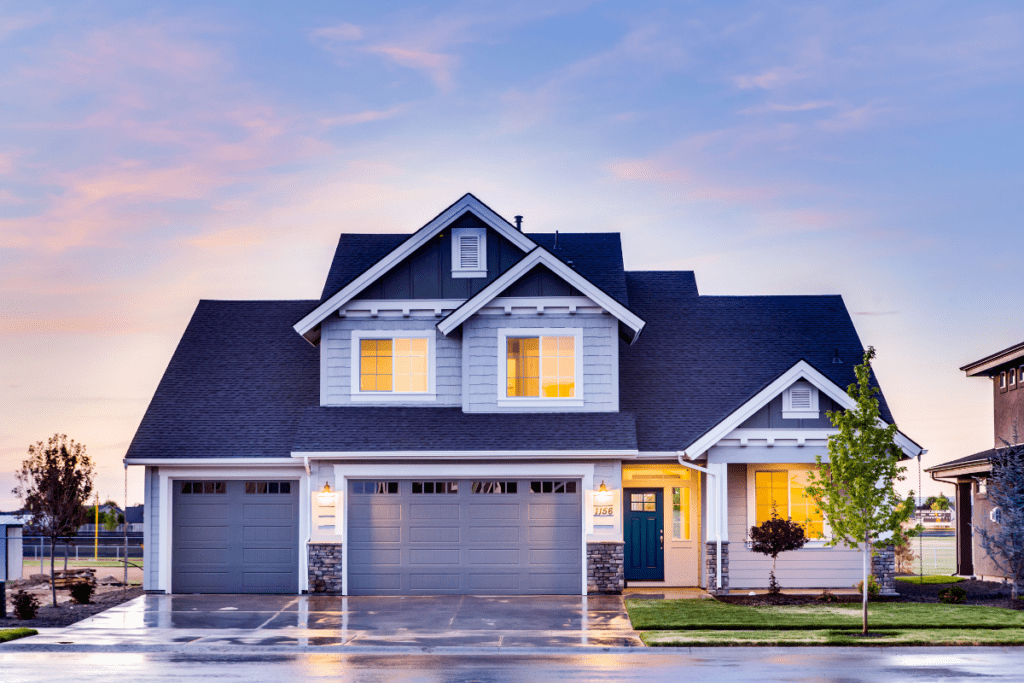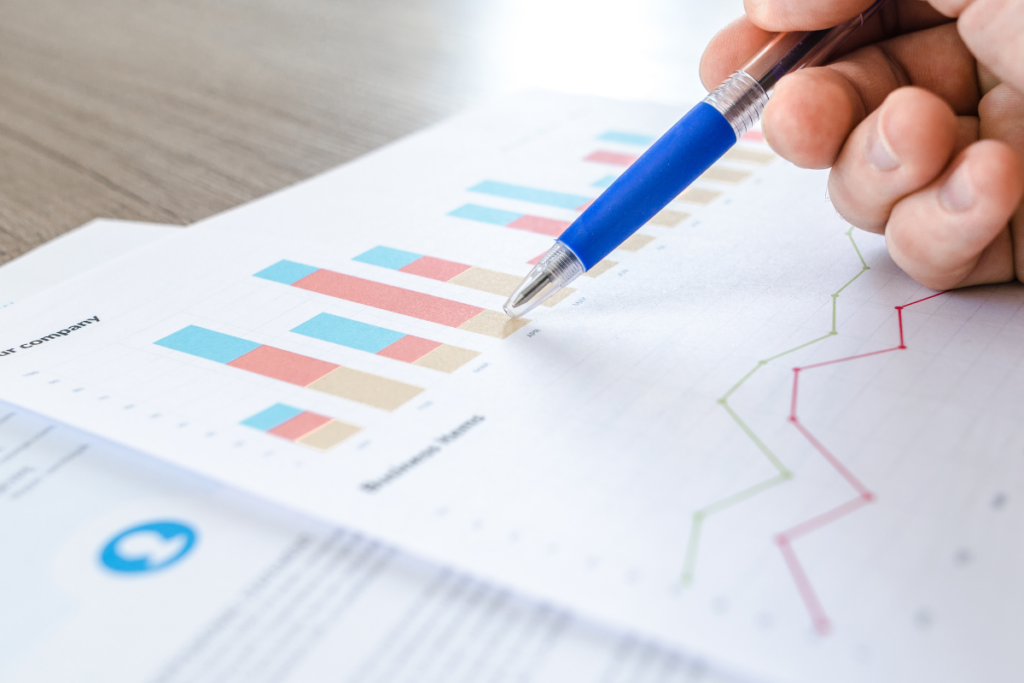For the vast majority of people, buying a house marks the most significant and expensive investment they will make in their lives. If you are hoping to buy, it’s understandable to want to ensure you pay a fair price. In this article, we’ll discuss how to estimate your property value before you buy.
Factors to consider when estimating property value
Often, when buyers are searching for a new home, they consider asking prices and property values to be very similar. In reality, there may be a difference between the value of the house and its asking price. It is possible for homes to go on the market at a much higher price than the valuation. Asking for an RICS Valuation is a means of gaining an insight into the market value of the property. There are several factors that influence property value and it’s wise to consider the primary contributors when trying to make an estimate.
Location
The location of a property can have a significant bearing on its value and marketability. If you are thinking about buying a house and you have a specific location in mind, or you want to make an offer on a property you have viewed, it’s beneficial to research house prices in the area. Focus on the street or neighbourhood, rather than looking at prices across a city, county or region. In many cases, prices within the same town or city can vary widely and some areas are more sought-after than others. It is helpful to take a closer look at prices now and to research sale prices within the last 12-24 months. This will give you an idea of how the local market has changed. You can use websites that post listings from a diverse range of agents to get prices or access information from the Land Registry.
Market strength and movements
The property market can be volatile and timing can be crucial when it comes to buying and selling. Once you have chosen a location or found a property, it’s wise to delve deeper to get an insight into how strong the market is and how it is moving. Ask estate agents questions about when the house was put on the market and how many people have viewed it, research historic sale prices and look for information about other properties that are for sale in the same area. Keep an eye out for trends. If sale prices are falling, or houses are taking a long time to sell, for example, it may be possible to negotiate a better price if you have found a property you want to buy. You may also wish to consider waiting for the price to fall further if you’re not in a hurry to move. The UK House Price Index will give you an idea of market movements, both locally and nationally. In July 2021, for example, the average house price in the UK rose to £256,000. This is £19,000 higher than the average price in July 2020.
Demand
High demand for properties can drive prices up and make it increasingly difficult to secure a house or apartment. If houses are selling rapidly and the demand is outweighing the supply, property values will rise. If the demand is falling, and the number of people wanting to buy is decreasing, values will take a downward turn. Analysing the local market can help you determine the value of a property. Factors such as how often houses go on the market and previous sale prices can influence demand. If there is a significant gap between the most recent data and the previous sale, and this trend is reflected on the road or in the town or village you’re researching, this indicates that properties don’t come up for sale very often. As well as established hot spots, demand may also increase in up-and-coming areas. Additional location factors can also have an influence. You may find that home valuations increase as a result of proximity to good schools and new infrastructure and amenities, for example.
Property features impacting value

The value of a property reflects several factors, including its individual style, size and features. If you are buying in a specific area, it’s worth comparing prices between different houses to see why prices vary and help you decide which investment makes the most sense for you. Features that can impact value include:
- Size
- Number of bedrooms and bathrooms
- Outdoor space
- Off-street parking and driveways
- Age
- Condition
- Layout
- Garage
- Potential to extend or convert
- External structures, for example, a garden room or summer house
In some cases, it can be beneficial to visit other properties that have a higher value to gauge potential and get ideas. It is usually less expensive to buy a property and take on work than it is to purchase the finished article. If you wanted to add an extension to create a large kitchen or space for a home office, for example, it would probably be cheaper to buy a house with a lower asking price and pay for the work than to buy the home that already has the feature you want to add.
Some other tips on estimating property value
Property websites
Popular property portals like Rightmove and Zoopla offer online valuation tools. These tools provide an estimated value based on the recent sales data of similar properties in the vicinity. However, they’ll likely not be as accurate as having someone visit the property in person.
Data accuracy
It’s essential to note that the accuracy of these tools is dependent on the quality and freshness of the data they access. Always check the date of the last sale or the number of properties they’re comparing against.
Remember limitations
While these online tools can give you a ballpark figure, they might not account for the unique characteristics of a property, such as its interior condition or specific location nuances. As such, they should be used as a starting point rather than a definitive valuation.
Professional Valuation
A Chartered Surveyor offers an in-depth, impartial valuation of the property. Their assessment considers the property’s structural condition, location, size, and any unique features. It can be particularly useful for properties that don’t have many direct comparables or are unique in design.
Ensuring that the surveyor is a member of the Royal Institution of Chartered Surveyors (RICS) guarantees that you receive a standardised, accredited valuation. RICS members adhere to a strict code of conduct, ensuring that their valuation is unbiased and of the highest professional standard.
Find out more on how to choose a good surveyor here.
Seek Expert Advice
Local Estate Agents: Local estate agents have in-depth knowledge of their respective markets. Their experience with recent sales, buyer demands, and community developments makes them invaluable resources. When consulting with them, however, keep in mind that they may have a vested interest, especially if they’re representing the seller.
Mortgage Lenders: When applying for a mortgage, your chosen lender will typically require a property valuation to ensure the asset covers the loan amount. This valuation can offer another perspective on the property’s worth. It’s usually a more conservative estimate, focusing on ensuring the lender’s financial risk is minimised.
Independent Property Consultants: These are professionals who aren’t directly involved in selling properties but offer advice based on market research and trends. Their perspective can be invaluable for buyers seeking an unbiased opinion on a property’s worth.
Making a decision around the value of your property
If you ever watch TV shows about buyers looking around homes, you’ll probably be familiar with the saying, ‘A house is only worth what a buyer is willing to pay.’ RICS valuations and asking prices can give you an idea of how much a property is worth, but the final decision comes down to the buyer. You may look around a house or a flat and think it’s worth more than the asking price and want to make an offer straight away, or you may arrange a viewing and come away feeling like a house isn’t worth anywhere near the price it is on the market for. Make use of viewings, go back as many times as you need to make a decision, spend time in the local area and keep an eye on news headlines and market trends to ensure you buy at the right time.

If you are looking to buy, it’s always beneficial to try to estimate the value of a property before you put an offer in. You can ask for a private valuation or conduct research to find out more about house prices, market trends and the potential to add value or find houses that offer better value for money. Please contact CJ Bloor Property Consultants for more information.




